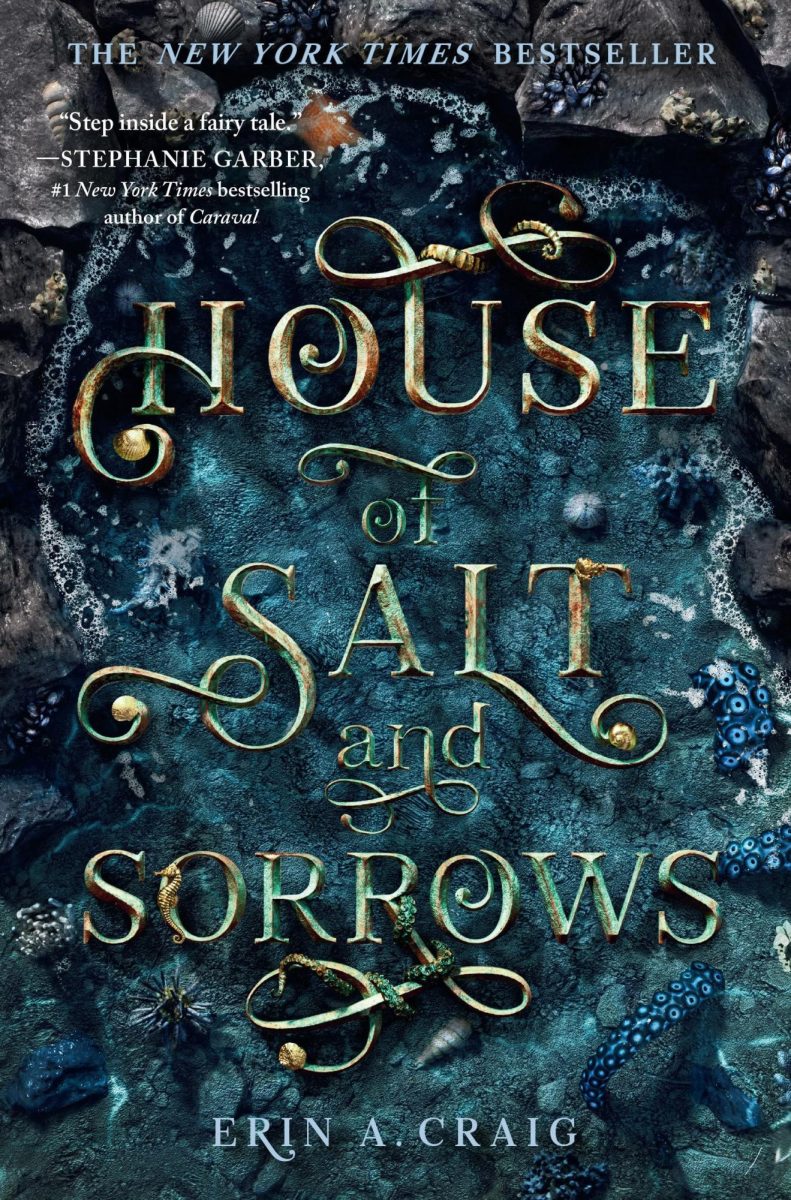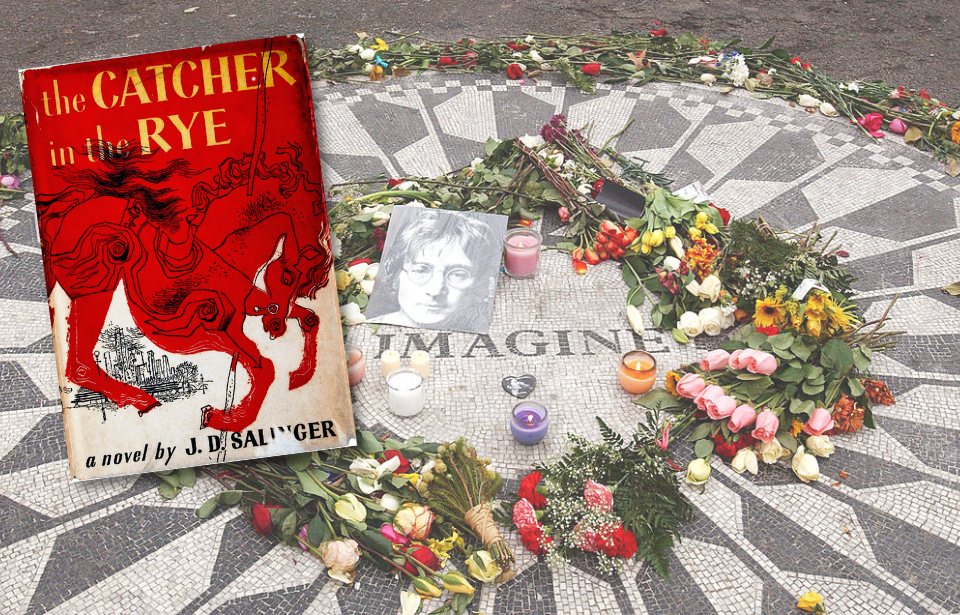If you live in America, you are likely acquainted with J.D. Salinger’s classic book The Catcher in the Rye. Part of this novel’s significance is that it has a long track record of being banned from school districts for various reasons, including profane language and topics like sexuality and mental health.
Catcher is about a 16-year-old boy named Holden Caulfield who was consistently kicked out of school, and had just gotten kicked out of his latest school, Pencey Prep. Caulfield struggles to understand mature concepts, like where he will go in life, how to deal with death, how to have deep emotional relationships, and many others. After being expelled from Pencey for poor grades and odd behaviors, Caulfield stays in his dorm for a couple of days before returning home for the holidays. His impulse control is a character flaw that was present throughout his dialogue and monologue, which led to a fight with his roommate and his final moment at Pencey. Caulfield then leaves early and decides to explore NYC by himself. In his endeavor, we as the audience start to see the themes portrayed of him feeling trapped in a world where individuality isn’t valued, and of not wanting to grow up.
One of the things commonly associated with The Catcher in the Rye is the main character characterizing everybody as “phony.” His judgments of people not being authentically themselves, typically by following societal norms, start to define Caulfield’s mental ideology. When people seem to fit in and be typical, he labels them with the word “phony” because he doesn’t think one should live an average life because that’s what the crowd does. Instead, he thinks people should be who they are and say their authentic thoughts even if they aren’t “normal.” As the novel continues, Caulfield struggles to come to terms with the fact that he will have to grow up and potentially become someone he isn’t in a career setting. This is expressed through the common topic being mentioned about him not knowing what he wants to do when he gets older and him not coming to terms with the concept that he will soon have to grow up and mature even if he doesn’t fully know who he is/what he wants to do yet. The reason for him growing up in some areas, but staying immature in other areas seems to be an effect of the traumatic loss of his brother. As a child, Caulfield brother dies, and he never fully grows past it.
Salinger gives his book the title The Catcher in the Rye after a conversation Caufield has with his younger sister near the end of the text. It’s what he imagines happens in the poem “Comin Thro’ the Rye.” Caulfied imagines a field of rye filled with children playing, but at some point in this field, there is a cliff. When his sister asks him what he wants to do when he grows up, he replies that he just wants to stay under this cliff and “catch” children, meaning he wants to save them and protect their innocence. This very specific allusion to this poem has to be one of the deepest and most literary significant analogies in history. This ties in with his feelings of not wanting to grow up and conform to society /adulthood into an additional theme that he wants to preserve the innocence of the world. Now don’t get me wrong, this short analysis I did of the book is only analyzing certain parts of the book; there are so many more important themes not even mentioned in this article about the main characters’ perplexity, so definitely give it a read!
So what’s the connection to Lennon?
If you’re a music fan, you may know that on December 8, 1980, Mark David Chapman assassinated the famous musical powerhouse, John Lennon. What you likely don’t know is why. Apparently, Chapman’s reasoning for this was that the main character in the book The Catcher in the Rye would have thought Lennon was a “phony.” Chapman was found reading the book after the murder of Lennon. While reading Catcher, audiences likely picked up on the themes of teenage angst and the struggle to adapt to society. This resulted in substantial self-sabotage for Caulfield, but what could possess somebody like Chapman to take it to a violent level, as Caulfied reserved his sabotage to himself?
In my opinion, an issue that Chapman had that resulted in this violent act stemmed from not fully understanding what the book was about. Although many people have different opinions, I don’t think the concept of Caulfield often calling people “phony” was the main idea of the book in the sense he took it. The reason behind the constant repetition of the word “phony” wasn’t necessarily to personally condemn people who blend in in the real world, it was done to prove a point that Caulfield wants to be himself in a world where conforming to societal norms will lead you to a much easier life. Caulfield doesn’t go and harm people just for being phony; instead, the reason for bringing such attention to this word is to stress the importance of the main idea that it is easier to just pretend to be someone you not to just get by because it’s “normal”, but he is different in the sense that he doesn’t want to be “phony” like everyone else–he just wants to be himself as an individual and not live this typical life that no one particularly wants to live.
Chapman sadly considered himself the “Holden Caulfield” of his generation, but that couldn’t be further from the truth. Caulfield used his strong value of individuality as a drive to help people, while Chapman used it to hurt. Although Caulfield had impulse control issues that ended up in pain, he only ended up hurting himself and didn’t drag anyone else down to prove his point.
After Chapman assassinated John Lennon, he was found reading The Catcher in the Rye while still at the crime scene. As disturbing as that was, it was not the last or close to only reference he had made to the book in his testimony. Chapman had felt as if Lennon’s rise to fame was “phony,” and felt like Lennon was disturbing the innocence of the kids. Chapman came out saying he did not like the popularity of Lennon’s luxurious, rich, perfect, lavish, phony lifestyle that he felt was taking over the youth. He also felt that by killing Lennon, he was preserving the innocence of the children, somehow trying to show this was similar to a parallel to saving the children from falling off the cliff. Although this concept doesn’t make any sense, Chapman felt as if he was saving the youth from the corruption of John Lennon’s “phony” popularity by killing Lennon.
Throughout this novel, the themes of preserving innocence and the value of individuality are very important in literary history. The novel by J.D. Salinger has had an impact on so many peoples’ lives and is a very deep novel if you take it the right way. Mark David Chapman misconstrued the themes in this book, most likely due to mental illness, which led to his final tragic and violent event: the assassination of John Lennon.






























